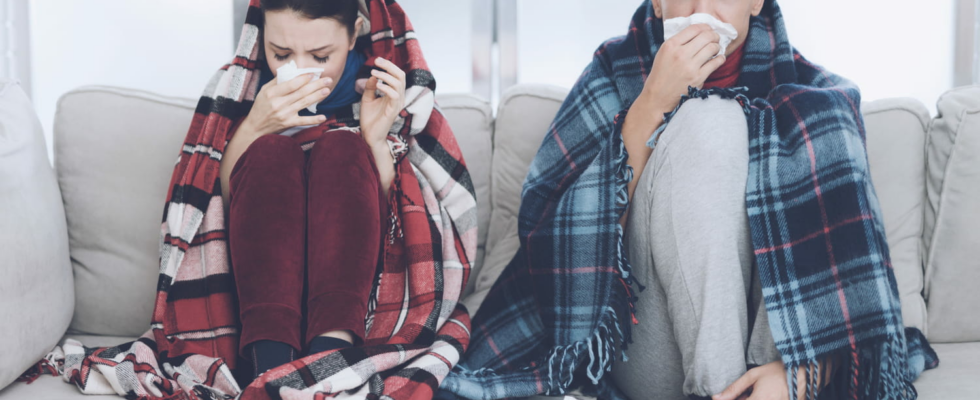Despite a relatively mild autumn and a winter which has not yet begun, the epidemic situation in the country is worrying, even worrying, according to the latest data from Public Health France.
France is currently facing an increase in acute respiratory infections (ARI), particularly affecting children, but not only. This generalized increase is mainly due to three viruses: the respiratory syncytial virus (RSV) responsible for bronchiolitis, the influenza virus and SARS-CoV-2 which causes Covid-19. A very recent report from Public Health Francepublished on December 4, 2024, provides a worrying inventory.
The bronchiolitis epidemic is intensifying worryingly, with rapid spread in the majority of metropolitan regions, as well as in the Antilles and Guyana. In these areas, emergency departments and hospitals are seeing a significant increase in cases, particularly among infants and young children. If RSV is the culprit in the majority of cases, other viruses such as rhinoviruses/enteroviruses also contribute to this increase.
At the same time, the flu is experiencing a resurgence, this time in all age groups. Île-de-France, particularly affected as often, has now entered the epidemic phase, joining other regions already in pre-epidemic, namely Hauts-de-France, Normandy, Auvergne Rhône-Alpes, Brittany and the Grand Est. The positivity rate for influenza is increasing sharply, both in community medicine and in hospitals, highlighting the scale of the epidemic.
On the Covid-19 front, however, the situation seems to remain relatively stable, with declining indicators. The level of circulation of SARS-CoV-2 in wastewater is decreasing, and the number of serious cases in intensive care mainly concerns unvaccinated elderly people. But not only and there are many cases among younger people who do not get tested and who are not recorded in official statistics. It must be said that after the 2020 pandemic, the disease seems to have entered the family of regular infections, which are no longer systematically reported, to the extent that they have less dramatic consequences.
Medical-social establishments (EMS) are particularly affected by this resurgence of ARI, after a slight lull the previous week. Covid-19 is responsible for the majority of cases in these establishments, highlighting the vulnerability of elderly and dependent people to respiratory infections.
Faced with this situation, prevention remains essential. Vaccination against influenza and Covid-19 is strongly recommended for people at risk, including the elderly, people with comorbidities and pregnant women. A passive immunization campaign for newborns against RSV is also underway.
In addition to vaccination, respecting barrier gestures, such as hand washing and wearing a mask in the event of symptoms, remains essential to limit the spread of viruses. It is important to remember that the epidemiological situation can evolve quickly. It is therefore advisable to keep informed of health recommendations and to consult a doctor if you experience symptoms.
